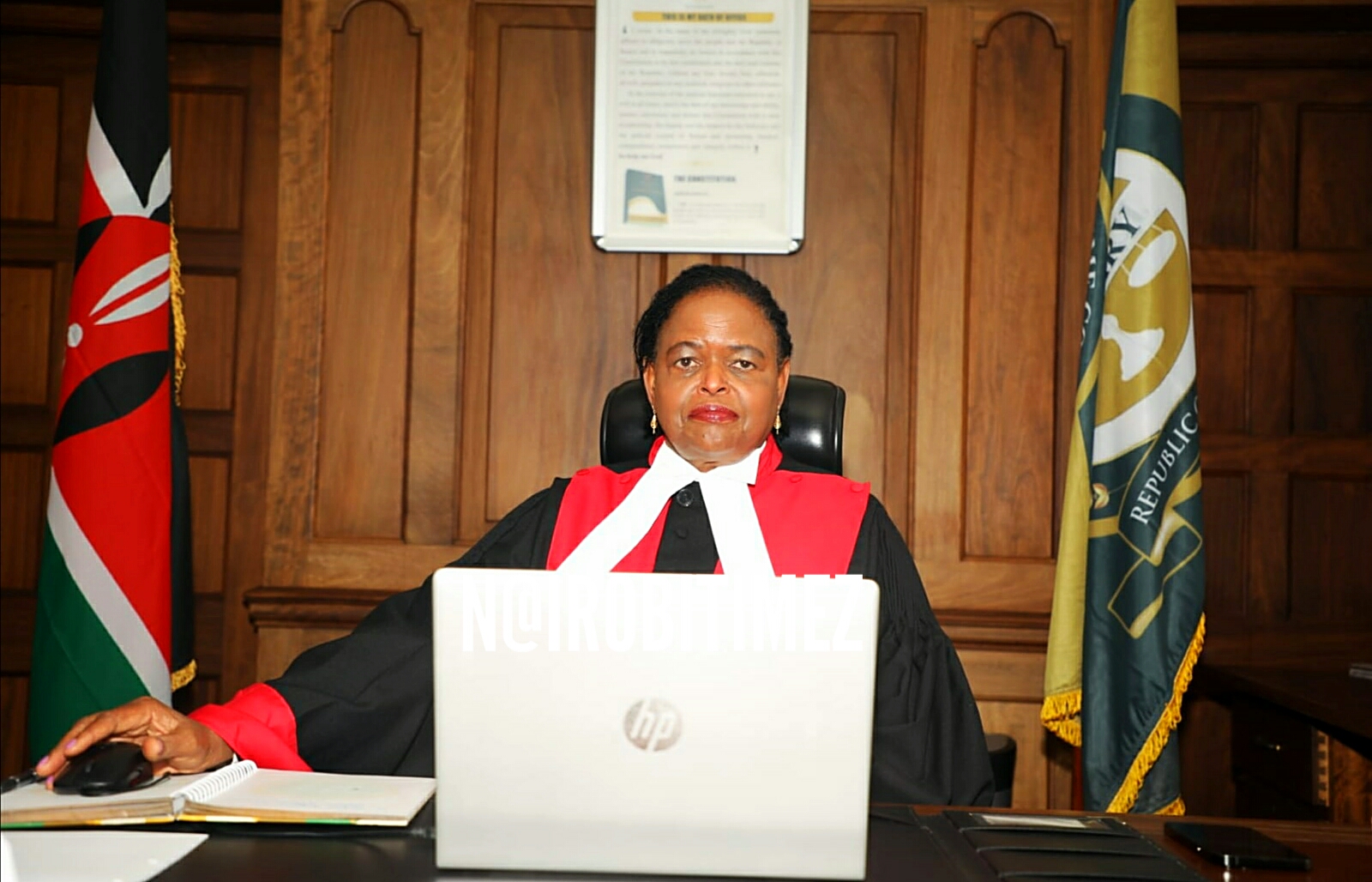
BY SAM ALFAN.
Chief Justice Martha Koome has asked the High Court to dismiss a petition by lawyer Omwanza Ombati challenging rules published by the Supreme Court gagging comments on presidential election until the matter is determined.
The CJ said the Supreme Court being the apex court and the court with original jurisdiction to hear and determine petitions on presidential elections, is allowed under Article 163(8) of the Constitution to make rules for the exercise of its jurisdiction.
The CJ submitted that the independence of the judiciary is a paramount aspect of Kenya”s democracy.
“It is very important that judges be allowed to operate independently and make decisions that are free from external influence. Disparaging comments are an attack on Judicial impartiality and independence which are integral to the rule of law enshrined in Article 10 of the Constitution,” CJ told the court.
She submitted that the rules being challenged are clear, reasonable, rational, proportionate and made to promote the spirit and letter of the Constitution as well as its purpose and principles and urged the court to find so.
Justice Koome who is also the president of the Supreme Court submitted that advocates have a duty to use social media in a manner that brings respect to the profession.
She said advocates must exercise care and refrain from indiscreet conversations on social media, which may be construed as an attack on the repute of judges and lowering of the legal profession as a whole.
According to the CJ, this is in line Code 10 of the Law Society Code of Standards of professional practice and Ethical Conduct, 2016.
The code states “Social media can be used in away which potentially can undermine the standing of the legal profession. Therefore, in using social media Advocates should be mindful of the obligation to uphold the dignity and standing of the profession and should apply the same high standards of conduct to online activity as they do in their day-to-day professional life.”
The CJ added that it is therefore unethical for advocates who have appeared before the Supreme Court and indeed any other court, to engage in public discourse or social media commentary in a matter pending judgement with the objective of disparaging the court.
“Such comments are an attack on judicial impartiality and independence which are integral to the rule of law enshrined in Article 10 of the Constitution. Public confidence in judicial impartiality and independence cannot survive if the bar in direct conflict to their ethical obligations go on a tirade on how the court will or will not decide, ” added CJ.
She further advocates must neither exhibit willful and intentional disrespect for the authority of the courts nor make social commentary in a manner calculated to lower the dignity of the courts.
“If they do, they trespass the bounds of legitimate advocacy must ascend to a higher echelon of service to the cause of justice,” she said.
Law Society of Kenya on its part told the court they will not support or oppose the petition but urged the court to find that Rule 18(4) is unconstitutional for lack of public participation.
LSK submitted that the court should also find that although the Rule serves a legitimate purpose compatible with protecting the court from conduct that undermines judicial authority, the Rule lacks mens rea and is cast in vague and overboard terms.
“The claim that the Rule is a statutory instrument is not merited, however. Supreme Court Rules are constitutional instruments per Article 163(8),” submitted LSK.






